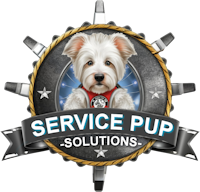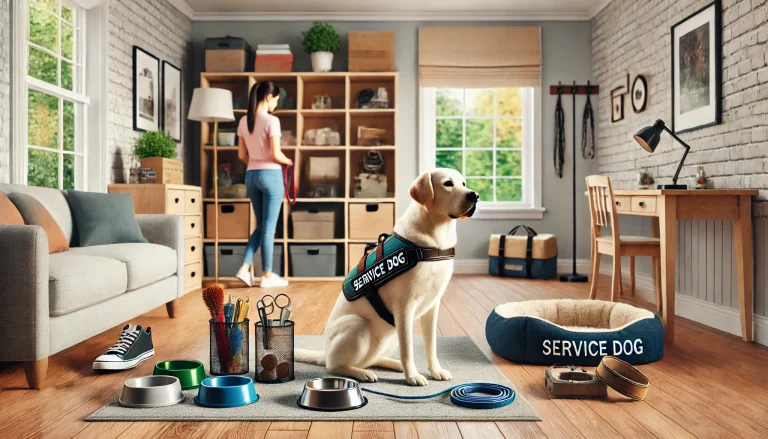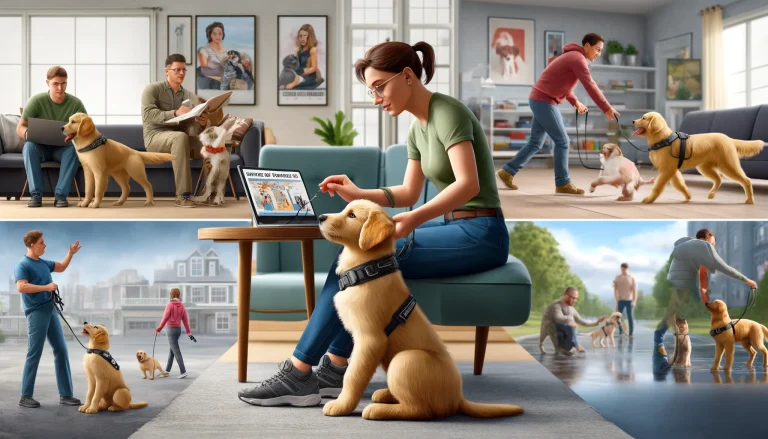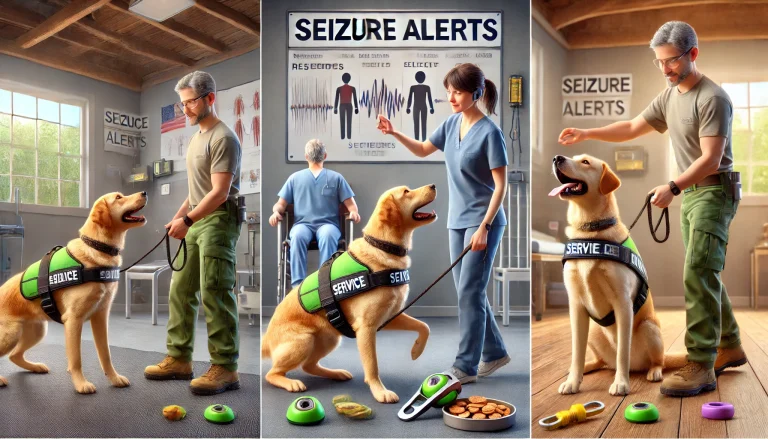Introduction
Navigating the complexities of service dog access rights is a common challenge for many handlers. While service dogs offer indispensable support and assistance, misconceptions about where they are allowed can create confusion and stress. This detailed guide seeks to clarify public access for service dogs, elucidate service dog legal guidelines, and empower service dog handlers with accurate information to navigate public spaces confidently and legally.
By the end of this guide, you will have a detailed understanding of where your service dog can accompany you, the exceptions to general rules, and how to assert your rights while respecting the regulations that govern public spaces. This information will equip you to move through public areas with your service dog more confidently and comfortably.
Understanding Service Dog Access Rights
The Fundamentals of Access Rights
Service dogs are trained to perform specific tasks for individuals with disabilities, including physical, sensory, psychiatric, intellectual, or mental impairments. Under laws such as the Americans with Disabilities Act (ADA), these dogs are afforded access to most places that the public can go. This legislative support is designed to ensure that persons with disabilities can lead more independent lives, facilitated by their service animals.
Clarifying Common Misconceptions
A prevalent misunderstanding is the belief that service dogs have an all-encompassing right to enter any space. While their access is extensive, there are notable exceptions dictated by other federal laws or safety regulations. For instance, private clubs and religious institutions are not covered by the ADA, and certain health codes can legally restrict access to service dogs in places like open food preparation areas.
Navigating Public Access for Service Dogs
Areas Generally Accessible to Service Dogs
Service dogs are typically allowed in areas where the general public is allowed, including places like shopping centers, restaurants, hotels, and public transportation. This access plays a critical role in supporting handlers in their daily activities and social interactions, fostering a greater sense of normalcy and independence.
Understanding Exceptions and Restrictions
There are specific exceptions where service dogs may be restricted for health, safety, or operational reasons. For example, clean rooms, operating theaters, or parts of zoos where the presence of animals may upset the housed animals or pose a safety risk. Handlers should be prepared for these exceptions and plan accordingly to avoid conflicts or misunderstandings.
Service Dog Legal Guidelines
Legal Requirements and Business Rights
It’s essential for handlers to understand both the rights afforded to them and the limitations of these rights concerning businesses and public facilities. By law, business staff can ask if a dog is a service animal required because of a disability and what tasks the dog performs to assist the handler. However, staff cannot ask about the handler’s disability, require medical documentation, require a special identification card or training documentation for the dog, or ask that the dog demonstrate its ability to perform the work or task.
Responsibilities of Service Dog Handlers
Service dog handlers are responsible for ensuring their dogs are under control and behave appropriately in public settings. The dog should be harnessed, leashed, or tethered, unless these devices interfere with the dog’s work or the individual’s disability prevents using these devices. In such cases, the individual must maintain control of the animal through voice, signal, or other effective controls.
The Importance of Pet Insurance and Service Dog Products
Why Comprehensive Pet Insurance is Essential
Securing comprehensive pet insurance for service dogs from trusted providers through ServicePupSolutions.com is crucial. This insurance helps cover unexpected veterinary expenses, ensuring that the health issues of a service dog do not become financial burdens that could impede their ability to provide support.
Selecting High-Quality Service Dog Products
Equally important is choosing high-quality service dog products that support the health, function, and comfort of the service dog. Products such as durable leashes, ergonomically designed harnesses, and weather-appropriate clothing can significantly impact the effectiveness and longevity of a service dog’s working life. ServicePupSolutions.com offers a curated selection of premium products designed to meet the unique demands of service dogs and their handlers.
Conclusion
While service dogs are granted significant access to public spaces, it’s vital for handlers to be well-informed about both the rights and the responsibilities that come with having a service dog. Understanding the detailed nuances of service dog access rights, public access for service dogs, and service dog legal guidelines ensures that handlers can advocate for themselves and their service dogs effectively. With the right knowledge and preparation, handlers can enjoy the full benefits of having a service dog, enhancing their independence and quality of life.
Searching for a way to boost your income while keeping your service dog by your side? Click here to start your side hustle and increase your earnings alongside your loyal companion.




